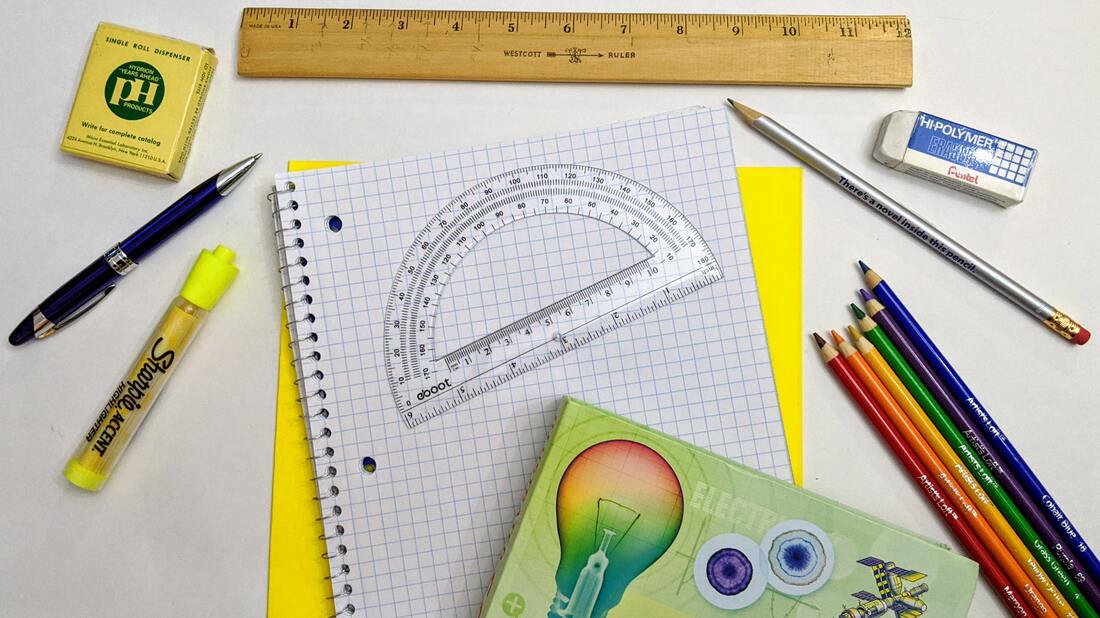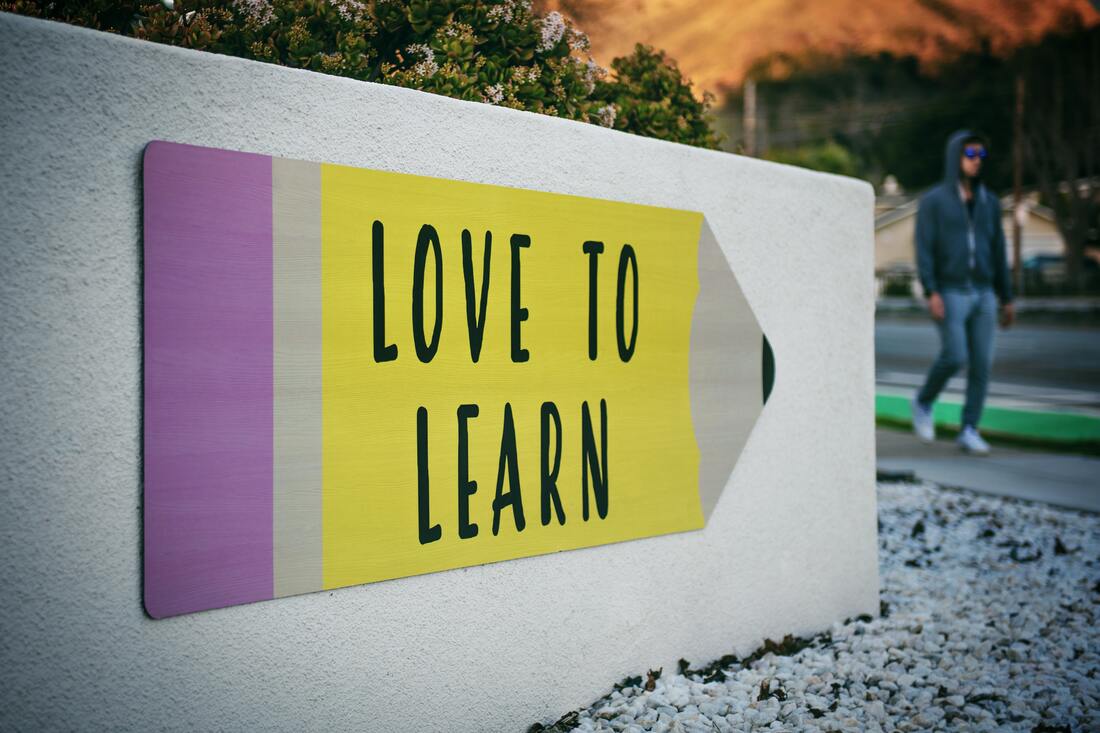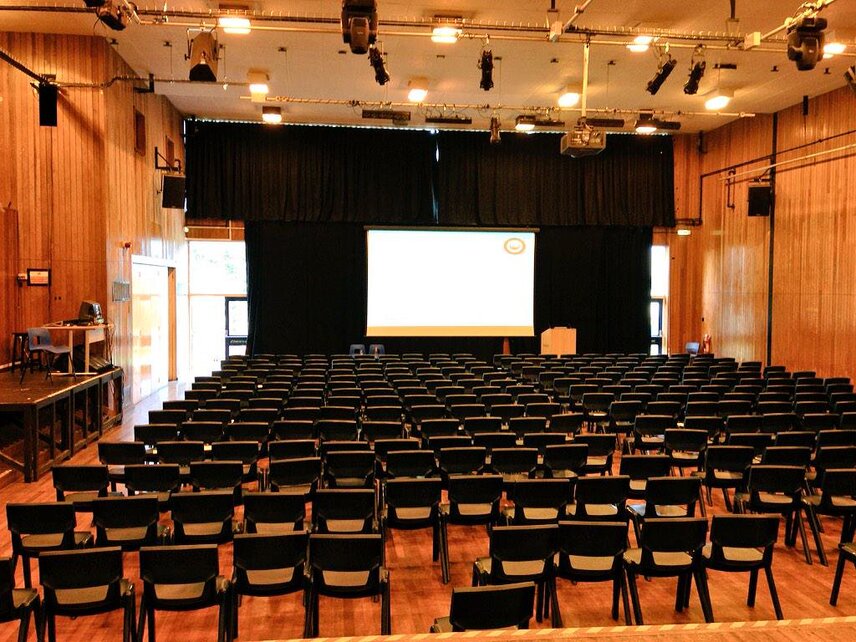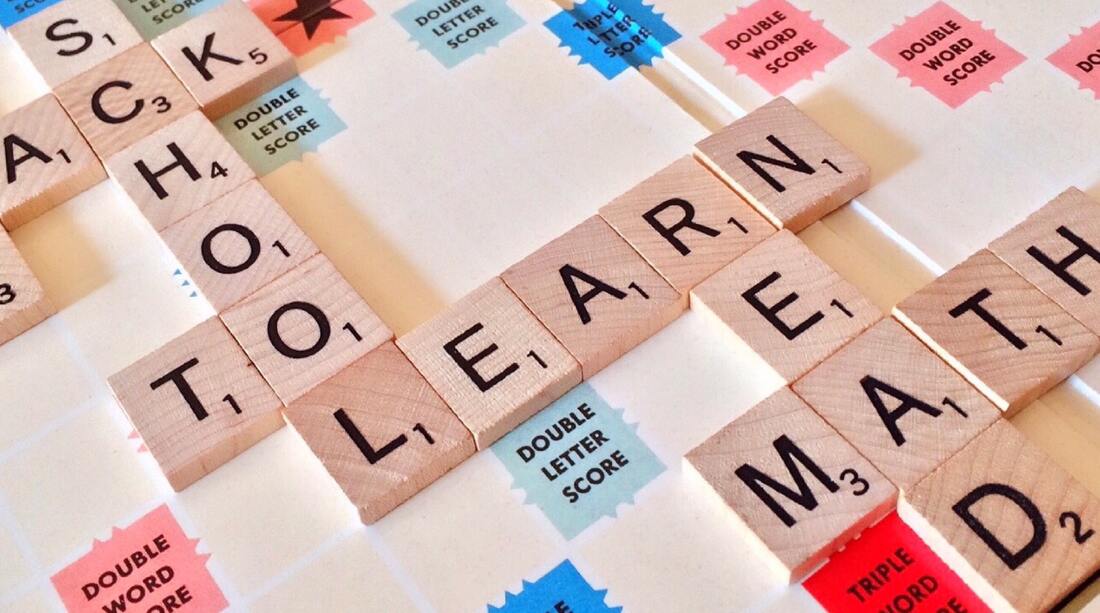|
This year has been my first outside of formal education. From finishing secondary school and going to uni, I’m going to consider what lessons a dizzying year without being ‘taught’ is teaching me.
0 Comments
Transitioning to higher education entails facing academic, social, and personal challenges. Mr Sarwar Khawaja of the Oxford Business College, talks us through why building a strong support system, including college networks, is essential for success.
September marks the start of a new academic year and as such it’s an important time for many of us. After spending months with relatively little structure over the summer, it can be difficult to get back into the flow of following a more rigid school schedule. This blog post highlights some strategies you can implement to re-establish your momentum.
The joys of sixth form/college are numerous; there’s something undoubtedly refreshing about having the autonomy to choose what, how and (for the most part) when you study. But, with this increased independence comes responsibility and it’s important to utilise the time you have, especially if you haven’t started Y13. So, today we’re going to take a closer look at one of the biggest changes you’ll encounter while shifting from secondary to A-level education: free periods.
Last week, I – and probably you since you’re reading this – stepped foot into a new arena. Whether you’ve decided to take up further study, start an apprenticeship or even begin working – we're all starting a new chapter as we edge ever closer to adulthood.
I’m just beginning my A-levels and have also started a new sixth form. For context, I’d been at my previous school since Year 7 (That’s about 5 years!) and thought it was time for a change. It’s been an *interesting* experience – there's something about being the new kid on the block that you really can’t shake off. That’s it. It’s over. GCSES are gone and a long summer lies ahead. It’s time to spend hours lazing about and weekends having fun with friends. Some of us might get summer jobs or do work experience but one thing is for sure – we're all going to enjoy the break.
However, something else also lies ahead... Last week, thousands of Y11s across the country sat down and opened the pages of their first exam; we’ll have to spend the next two months writing paper after paper, fiddling with calculators and trying to figure out how to use a compass for the hundredth time. As I was sitting in the exam hall I couldn't help but think: why am I doing this? We’ve all been told that GCSEs are important; they can help us get good jobs - or at least craft good applications - but how important are they really? And are they worth all that stress?
Since it’s March, the month of Easter, baby sheep and daffodils, I thought I’d talk about the importance of education, for women in particular. Oh, and also because of the minor detail of March being Women’s History Month and the month of International Women’s Day. Before we get going, to any guys reading this- please keep reading! Having a blog which talks mainly about women and girls in the education system concerns men as much as it does women.
As a student, a valuable aspect of learning that often gets overlooked is the importance of being your own teacher. After years spent in education, you should hopefully have a grasp on your interests and motivations when learning. Your likes and dislikes. This understanding of yourself and your own strengths are key to being an effective learner.
But how do we get to the point where we can say we are good at learning? Wow, what a year. I started year 11, survived remote learning AGAIN, finished my mocks and now I’m writing a blog each month for Push. I find that this time of year is perfect for reflection and thinking about new beginnings and so I’ve decided to share a few of my closing thoughts on 2021.
Work smarter, not harder, is a favourite mantra of mine. Although this article focuses on studying, it can be applied to every aspect of life.
The inspiration for this topic came to me a few months ago, as I sorted through a box of old paperwork in my room. I came across a sheet of paper from my A-levels, listing the hours of revision I had done each day. I stared down the columns of 5s, 6s, and 7s, and was struck by the vivid recollection of just how bad my revision had been. It goes without saying, but Covid-19 has caused a nice little disruption in students’ education and wellbeing. From school closures to exam stress, we’re left floating in a void of uncertainty. What’s next? To help clear up the confusion, we share a few tips on how you can regain control, reduce anxiety and achieve your learning goals.
In a world full of social media and other digital distractions, technology can either be a huge time drain, or it can be used to our advantage. Whether you want to improve your family or social life, your work performance, or your study habits, you can do it with the help of a good productivity app.
I'm going to share a few of my favourite productivity apps below, but first let's look at the benefits of using a productivity app to track your habits and goals. Reality check, maybe you haven’t been having the best summer ever. Maybe you feel like you’ve got tight knots in your stomach every time you think about the future. Maybe butterflies flutter in your stomach every time somebody mentions ‘grades’, ‘apprenticeship’ or ‘university’. Results day is August 10th and it couldn’t have been further away. It’s hard for this empty time in the no man’s land of uncertainty to be liberating or enjoyable to anybody.
Unless you’ve managed to live in a blissful oblivion in a great summer of forgetting results day, you’ll probably be finding it hard to distract yourself from this dawning anxiety… how can the outcome of two hard years of work be all over in less than a month? Will I even be ready to move on? How do I trust my grades will be right? And, the big one. What will I do if I don’t get what I need? The purpose of this article is to try and present learning in a new light – to show that learning can be a powerful and enjoyable tool for life. I’m not talking about any specific area of learning – this isn’t an argument that you should become an expert on the mating cycles of sea-slugs.
This may well seem like a strange concept – you might ask “why on earth would I want to love learning?” Learning is, after all, school and university, endless classes, exams and stress. Isn’t it? No. With everything opening up again and exams for year 11’s and year 13’s getting ever-closer, time management and prioritising is going to be a key skill this month.
Of course, putting things into perspective is important too, both on a global and personal perspective. In this blog, I’ll be talking about things you should be doing to get ready for oncoming assessments, as well keeping up with broader things. Now, for this analogy to work I think it's pretty important that you understand I do not believe in astrology. This will not be a celebration of how my Year 9 career aptitude test told me I would be exactly where I am today, or the accuracy of my daily star chart.
Come to think of it, I don’t think I’ve ever looked at a daily star chart, nor am I interested in doing so. Don’t get me wrong, I think that astrology is incredibly smart! It takes very limited knowledge of an individual and provides some sort of conclusion to which they can think, “Huh… I do that.” It’s genius. However, I don’t think many of us would base a huge life decision off an astrology prediction… Schools are once again open. Dust is being scraped from desks, mice are finding themselves evicted from projectors and teachers are trying to remember how to write.
You’re going back to school, after maybe a year of learning from home (or in bubbles), separated from your teacher and your friends by a screen and the whims of the Wi-Fi. So, how on earth are you expected to concentrate? You’re not alone if it appears overwhelming. A key point to remember is that everyone is in the same situation as you. Even your teachers will be a little stunned by so much human contact. It’s been an exhaustingly long term as we trudge towards the Christmas holidays. If the sun doesn’t wake you up and disappears before you arrive home, at least the blindingly bright red nose of Rudolph on your window will bring some light. Especially if you’ve had to isolate lately, the days may seem to blur tediously together like a tangle of Christmas lights: checking emails for ucas offers, coursework, finding yourself on tiktok, work, having a nap that lasted too long…
To put it simply, things are getting a bit dull. In this blog, I’ll be talking about how we can productively lift our spirits by discovering some new interests. ‘Tis the season of sharing and goodwill! Time seems to be as short as the fading sunlight, but luckily, there’s still 24 hours in a day. We can still make the most of it and break this cycle of yawns and staring at the ceiling. Whilst school teaches us that our aim should be to productively get school work done, this is far from the truth. Yes, it is about being efficient at completing tasks, but productivity is not always about academic work. Fair Access Coalition and the Fair Education Alliance: Statement regarding A-level grade allocations14/8/2020 A group of leading educational access charities and not-for profit organisations is calling for the government to take action to ensure that young people from less advantaged backgrounds do not face additional barriers in accessing further study, training and employment opportunities, following the allocation of A-level grades this year.
We recognise that the circumstances surrounding this year’s A-levels made any ideal outcome impossible, but it is clear that – in a significant number of cases – individual students have been left with their future plans in disarray. What’s more concerning is that many of these students are from the least advantaged backgrounds. These are the young people who already face the biggest barriers in accessing higher education; barriers that have been compounded during lockdown. Every hour, we are encountering more young people whose plans for university, apprenticeships or jobs have been seriously affected because they were statistical exceptions. We note that Ofqual's Technical Report details that the A/A* attainment gap between FSM and non-FSM students increased from 6.1% in 2019 to 7.1% in 2020, reversing progress made the prior year. Furthermore, independent schools saw a 4.7 percentage point increase in A/A* grades compared to just 0.3pp at Sixth Form/FE/Tertiary colleges. As coalitions, working collaboratively to tackle educational inequality, our priority is to focus on how we, and the government, can best support young people. We call upon the government to ensure that no student, particularly those from disadvantaged backgrounds, has their opportunity of work, training or study compromised by being graded unfairly by an algorithm. We urge the government to do this by:
Signatories Nathan Samson, CEO, The Access Project, [email protected] Anne-Marie Canning MBE, CEO, The Brilliant Club, [email protected] Laura Gray, CEO, Brightside, [email protected] Sam Holmes, CEO, Causeway Education, [email protected] Maria Neophytou, Interim CEO, Impetus-PEF, [email protected] Rachel Carr OBE, CEO, IntoUniversity, [email protected] Johnny Rich, CEO, Push, [email protected] John Craven, CEO, upReach, [email protected] Rae Tooth, CEO, Villiers Park Education Trust, [email protected]. Sam Butters and Gina Cicerone, Co-CEOs, Fair Education Alliance, [email protected]. On social media: #coalitionforfairness "The standard of the delivery (online) was excellent...pass on my regards and thanks to @AronTennant @mojtaylor. It was definitely useful and I think it will have hit on a number of different levels from being informative of what opportunities they have around them to a more personal level of who they are and can be. It was a pleasure to be part of." - Mike, Bedlington School
Are you heading to university? I'm sure you have a few questions about what awaits you... Push has been flexing our broadband muscles (it's either that or real running) with a host of interactive online sessions for students, over summer term - to 1,000s of young people across the UK. If you missed out, then chill (we mean it, it's baking out there). We've selected some of the most interesting (and useful) questions we've been asked by year 11-13s, regarding the HE Experience... A paid contribution by our friends over at Rochester Independent College. We think this is a useful and interesting article for all our readers and are happy to publish.
This article is the first of an ongoing series of my thoughts on the path of education many students face. In this post, I’ll be taking a look at A-Levels - what their purpose is, how they function and whether or not they need to see change... Let me tell you about my GCSE and A Level experience…
I was a straight-A student. I am firmly in the "was" corner as opposed to the "am" corner. For any student reading this, stop right now and say out-loud either way “I am a 1-9 student” or “I am a BBB student” and “I was a 1-9 student” or “I was a BBB student”, with the grades you are personally predicted. Now, honestly: how does hearing yourself say each version make you feel? I know how deeply personal and long-lasting grades can feel. They are lodged in the mindset, and some believe they define who you are as a youngster or as a unique individual later in life. I look back with a "phew" in my mind: a (retrospective) fondness for the stress I went through when I was 15/16 and 17/18 years' old, and the rewards that ultimately reflected both learning experiences. I know a lot of people in the "am" corner when they talk about their grades from years past. They are usually the ones that can’t let go, and most haven’t gone on to fulfil their true potential. People either do or don’t associate their current selves to their GCSE or A Level / B tech grades Whilst basing your grades on the work you’d done up until 20th March might not seem fair as you didn't get Easter to hand in any great work based on past papers (naturally people improve the closer to the exams it gets), getting your teachers to take responsibility for your final grade does take away the potential pitfall of the exam itself…and we mustn't forget how many students' nerves get the better of them on the day.
A "winner takes all" approach doesn't work for every student. I’d say it doesn’t work for most and isn’t a healthy way to grade long-term effort and progress, and it certainly isn’t reflective of the working environment most people will find themselves in, where every single day, the realities of the job (and keeping it) is the grade |
This section will not be visible in live published website. Below are your current settings: Current Number Of Columns are = 1 Expand Posts Area = Gap/Space Between Posts = 15px Blog Post Style = card Use of custom card colors instead of default colors = Blog Post Card Background Color = current color Blog Post Card Shadow Color = current color Blog Post Card Border Color = current color Publish the website and visit your blog page to see the results Categories
All
We're always interested to hear from talented young writers, so if you'd like to feature as a guest author then hit us up for more details.
|
Student blog: What's new?
Author
Write something about yourself. No need to be fancy, just an overview.
This website uses marketing and tracking technologies. Opting out of this will opt you out of all cookies, except for those needed to run the website. Note that some products may not work as well without tracking cookies.
Opt Out of Cookies





















 RSS Feed
RSS Feed